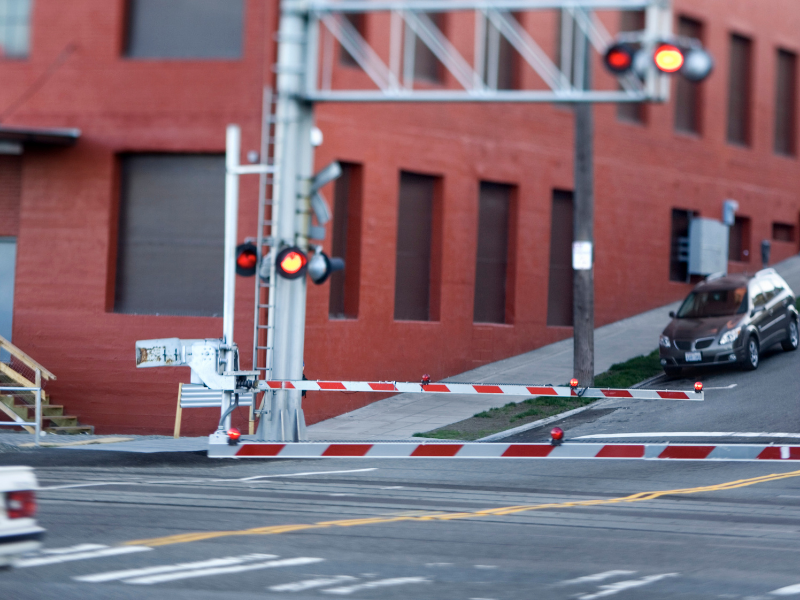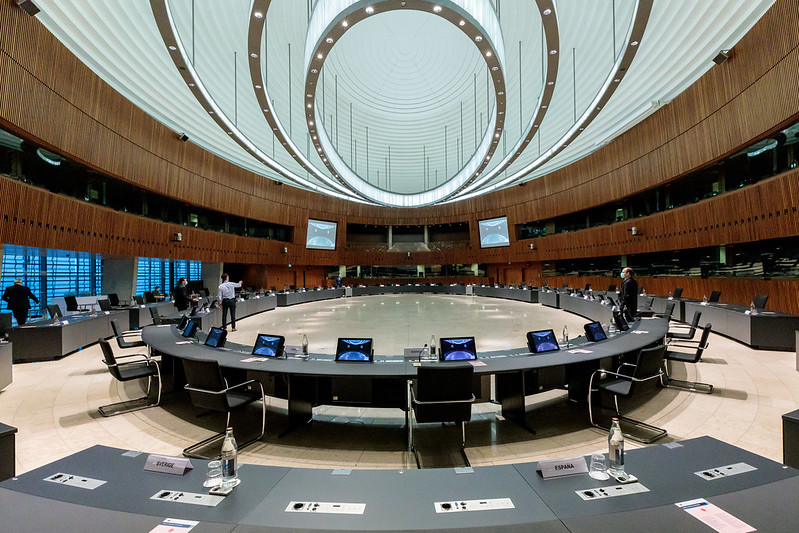It was pretty nice here one evening, so my sister, niece, and I decided to walk to get food and milkshakes at this really cool milkshake place instead of driving. It was an amazing 74 degrees – perfect weather for a walk and good food, right? We picked up our shakes and grabbed our food and started the journey back home.
Now, the original walk was maybe 15 minutes from the house so no big deal getting back, right? Wrong! On the way home, a train that frequents that side of town was stopped on the tracks. Typically, it moves after about ten minutes or so, so we just decided to wait.
Well, after about 15 minutes we sat down, and after 25 minutes, we got discouraged. We ended up waiting about 40 minutes and that train never moved. As we sat, though, we saw folks climbing between the train cars to get by and even saw a couple of dudes crawl under the train. Of course, we were mortified because that was dangerous and not very smart. I mean, what if the train started moving again when they began their shortcut?
Needless to say, we decided against it. Anyhoo, after our 40-minute wait, the train still hadn’t moved so we took the long way home. This meant going back toward the way we’d just come from and then an extra 3 blocks out of the way. So, our 15-minute walk back home became about an hour and a half. We were tired and hungry again because remember, we’d just picked up our food. By the time we finally got back to the house, we’d gotten in way more steps than we intended to, but we were safe.
Your Destiny May be Delayed, but Not Denied
 Alright, let’s get to it. In life, there will be many roads to travel, many plans made, and routes mapped out to make it along those roads. So often, though, we don’t think to take into account the “trains” that may stop in our way.
Alright, let’s get to it. In life, there will be many roads to travel, many plans made, and routes mapped out to make it along those roads. So often, though, we don’t think to take into account the “trains” that may stop in our way.
There are times that we even decide to wait it out, convincing ourselves that it won’t be long before that obstacle moves. We watch as others take short cuts and move around and under the trains that we feel should move at any time. When they don’t, we get discouraged.
There have been times when I felt I had to take the longer route to my destiny. I felt that the route that I’d taken caused me to go beyond where I should actually be and by the time I arrived, I was tired and unmotivated. What made me even more discouraged was seeing others who seemed to have passed me on my route. I have had to learn (still learning) that the longer the route and the harder I work to get where I’m going, the more commitment I should have after making it. See, the fact remains that, no matter how long it takes you to get there, you will make it. You even get some free “exercise” along the way.
So, What’s the Play Call?
I know it gets discouraging as you watch road-blocks park themselves in front of you. Don’t give up. Here are a few things to keep in mind as you travel those extra blocks to get where you’re going:
- Let your faith lead you. Often, when we are discouraged, we fail to see the “big picture” that got us started in the first place. This is why we are called to “walk by faith”. “For we walk by faith, not by sight;” 2 Corinthians 5:7
- Do not let the paths or progression of others throw you off. Again, discouragement causes us to be blinded by everything but the end result. Seeing all those folks climb over and under the train was frustrating (mainly because it was stupid) because they were getting where they were going the wrong way while we waited to do it right. Know that if you follow Christ, you will not be led in the wrong direction. “In all thy ways acknowledge him, and he shall direct thy paths.” Proverbs 3:6
- Take the freebies. You know, the things you learn and gain accidentally, on purpose, as you travel your path. All those life lessons that God has been trying to get us to learn for years that only made sense once you “went through it”. “It is good for me that I have been afflicted; that I might learn thy statutes.” Psalms 119:71
No matter what train you are facing right now, know that God always has a way. Just because it has not moved, does not mean your destiny stops here.




